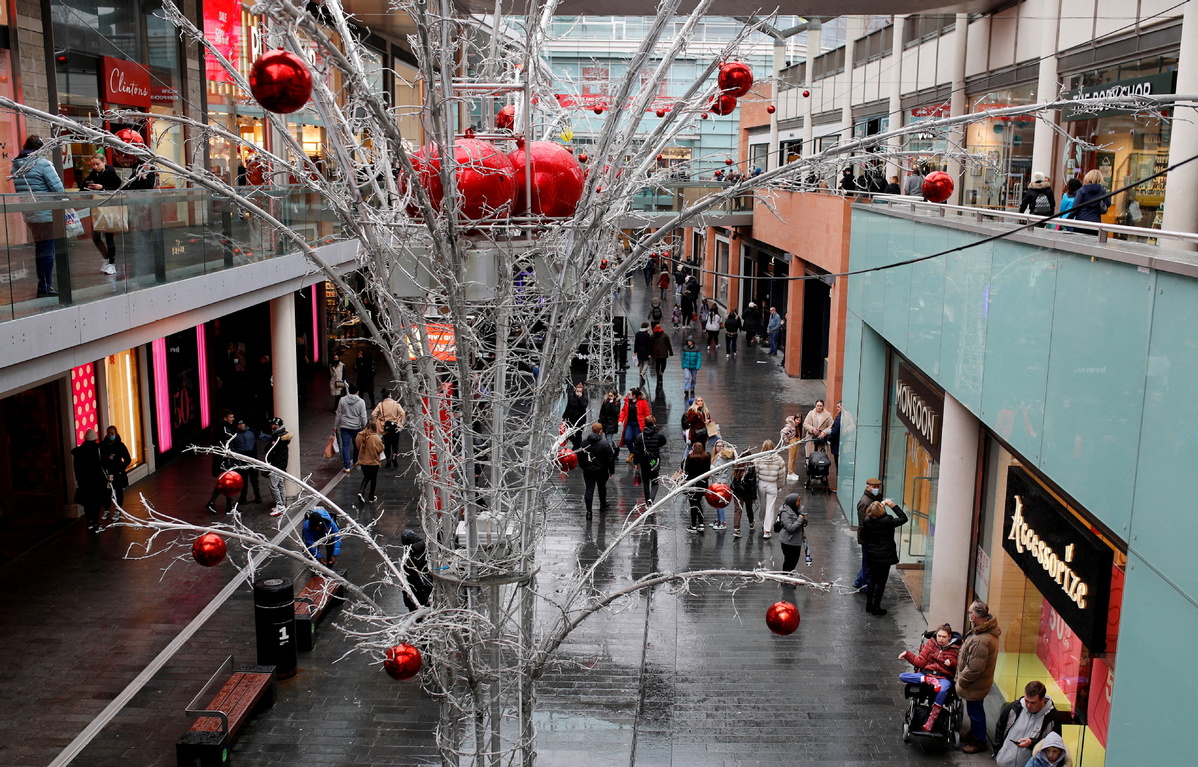UK inflation predicted to reach a 30-year high
By EARLE GALE in London | China Daily Global | Updated: 2022-01-19 09:19

Economists say upward surge is due to cost of energy, supply-chain issues
The United Kingdom's skyrocketing inflation rate during December will heap pressure on the Bank of England to raise interest rates, the Financial Times newspaper has reported.
The paper, which is widely read by workers in the UK's financial sector, said the inflation rate likely hit a 30-year high, largely because of the novel coronavirus pandemic increasing "upward cost pressures" across the economy.
The Reuters news agency also predicted a rate unseen for three decades ahead of official data being released on Wednesday.
Reuters said, after a rate of 5.1 percent was recorded for November, economists were braced for 5.2 percent for December.
The high rate, Reuters said, was down to supply-chain disruption caused by the pandemic as well as much higher energy prices and strong consumer demand for most goods and services after people emerged from lockdowns and other pandemic-related restrictions.
Yael Selfin, chief economist at KPMG UK, told the Financial Times most economists believe inflation will keep going up until it peaks in April.
She said that likely means the Bank of England, which is the UK's central bank, will need to increase its key interest rate several times during 2022 and "shift towards a significantly tighter monetary policy stance".
The Bank of England's monetary policy committee will next meet on Feb 3 to discuss its interest rates.
The committee edged its key rate up by 15 basis points, to 0.25 percent, in December, to address November's high rate of inflation. The hike was the first for more than three years.
Paul Dales, chief UK economist at Capital Economics, told the Financial Times he expects inflation to hit almost 7 percent in April, partly as a result of the UK's energy regulator, Ofgem, increasing its default energy tariff price cap, which will greatly increase fuel bills.
The Bank of England has set itself a target of limiting inflation to 2 percent, so will not want to see that 7 percent rate.
The BBC reported on Tuesday wages have not been keeping up with the fast-rising rate of inflation and with rapidly increasing prices on the high street.
The broadcaster quoted an unnamed spokesperson for the Office for National Statistics, or ONS, as saying: "Salaries are growing reasonably strongly, but some people are saying they are not feeling much better due to rising prices."
Official ONS data shows salaries, when adjusted for inflation, effectively fell by 1 percent during November.
The Resolution Foundation think tank, which advocates for improved living standards for people on low and middle incomes, told the BBC: "Real wages officially began to fall in November, and the current period of shrinking pay packets is likely to get worse before it starts to ease in the second half of 2022."
However, Sky News said there will be a silver lining for the UK's workforce in the longer term, with vacancies currently at a record high of 1.24 million and employers starting to compete for quality employees.
The broadcaster said that shortage of skilled workers and the high rate of inflation will give employees a strong bargaining position in 2022 from which to seek bigger pay rises.
























